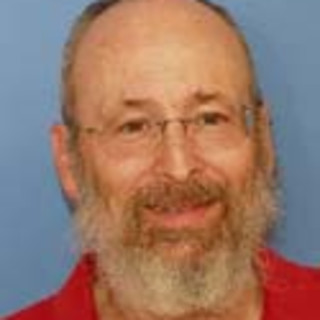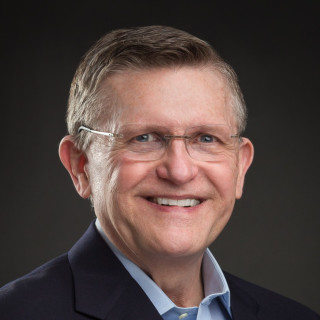
Leading up to my 60th birthday, I knew if I didn’t slow down I would burn out.
A part-owner of a 6-doctor group, I had dealt with 65% overhead for 23 years. I knew I was working too many hours and not getting enough sleep. I started looking for part-time positions close to home and gave my partners a notice of 120 days.
But I examined my original contract and my non-compete clause. It specified that I not work as a Family Practitioner within 30 miles of the city limits for one year. Meanwhile, my lawyer assured me that my state’s courts had stopped enforcing Primary Care non-compete agreements years ago.
I thought hard for two weeks, while still working long clinic days and call nights. My partners probably wouldn’t have sued me if I had flouted the contract; such an action would have made them pariahs in the medical community. If the matter went to court, however, my lawyer assured me I had a very good chance of winning.
In the end, I decided my valuation of personal integrity hadn’t changed in the quarter century since I signed the contract. I asked my partners to let me out of the group, they declined, and I kept my part of the bargain.
I was rewarded with my best year, ever.
I learned how to calculate my work hours
I called my wife from my first locum assignment to tell her that I had put 63 hours onto my time card that week, while still making time for exercise, sleep, television, recreational reading, recreational writing, socializing, and playing Dixieland jazz on my sax in the world’s northernmost Mexican restaurant.
She asked me how many hours I had been working before, and when I asserted 54 hours, she told me to recalculate, as if I had to fill out a time sheet. The answer was 84 hours per week. I was horrified.
I Started Down the Locum Tenens Road
Forced by my non-compete to either leave town or quit work, I gave in to hiring one of the innumerable recruiters and headed into the Arctic. I found a sense of adventure and spontaneity I’d thought I’d lost during med school. I discovered that I had more freedom than I could have imagined.
I Found Out Just How Much I Love Medicine
Before that clause made me slow down, I would rant to my wife about what I called “front end loaders,” patients with a laundry list of problems who wouldn’t get to the point of the visit till I got my hand on the doorknob. Sometimes she would gently tell me that perhaps they deserved a more patient doctor. In retrospect, seeing 40 patients a day is probably too many.
I love my profession, deeply and passionately, to about 40 hours a week. I even love it up to 50 hours a week. I like it a lot up to 60 hours a week, I kind of like it up to 70 hours a week, but anything more than that I start thinking I’d like to do something else. Like being a paper weight or taking up photosynthesis.
My Lactose Intolerance Almost Disappeared
I used to tolerate up to one scoop of ice cream—a teaspoon more than that would have my gut in knots for hours. Having milk on my cereal or in my coffee was out of the question. Now I can have not only yogurt and kefir but also plain milk.
Several other food intolerances have also vanished or greatly improved.
I Learned Negotiation Skills That I Wish I Had Acquired Long Ago
Negotiating skills come only with experience, and most docs never negotiate more than a couple of contracts in their lives. Every locum assignment offers a chance for skills building. I only have to live with the consequences of a badly negotiated locums contract for a few months. And negotiating skills carry over from business to medicine. I’m much better now at getting patients to quit smoking and drinking than I used to be.
I Spent Eight Weeks Under Alaska’s Midnight Sun
The sun didn’t set that first summer, I got to talk with subsistence hunters, and I learned the vitamin D value of seal oil. I went to a nalukataq, sometimes mistakenly called a blanket toss. Imagine people being thrown 40 feet into the air and landing on their feet. While it’s not exactly a blanket, it’s definitely the way the Inuit celebrate the whale harvest.
I Worked in New Zealand
Imagine a practice environment without medical-legal fears, without prior authorizations, with polite patients who encourage you to take a break at 10:00 a.m. and 3:00 p.m. every day and with the EMR that improves patient care.
Kiwi culture values quality of life over the bottom line (for example, taking a night call brings the reward of a whole day off). Therefore, we had ample opportunities to tour vineyards, shear sheep, and visit marvelous beaches.
My Income Per Hour Went Way Up, But My Total Income Didn’t Go Down Much
I learned about what economists call marginal cost benefit: if I worked 84 hours a week, between taxes and overhead, the last 4 hours probably brought in less than a dollar. Because of the prior year, I had to pay estimated tax every quarter. The refund bought me a nice new car when I returned. At the end of the year, I’d worked half the hours, but my income only dropped by 25% compared to the previous year.
I Began a Blog
I’ve always enjoyed writing, and have found that blogging really puts me into the moment and brings an immediacy to my day. Four posts in, I started with a limerick, which was followed with almost 800 more. Not surprisingly, over 400,000 words later, I’m a better writer.
I Influenced My Daughter and Son-in-Law to Take Up Locum Tenens Work
Our oldest daughter was in residency when I went walkabout. She had never seen her father so happy, and she and her future husband decided to try it when they finished training. During their year, they visited Washington state, the California wine country, and Hawaii.
I Reinvigorated My Marriage
It was not until I had slowed down that I realized how impatient I’d been, not just with my family and employees, but with myself. As my demands on myself became more reasonable, so did my demands on my wife. A happier me meant a happier marriage. As I decompressed, I could enjoy life more, and I could enjoy my marriage more. No surprise that my wife responded positively.
One of our favorite things now is to hold hands and talk about where we should go next.
Dr. Steven F. Gordon is a family physician and a 2018–2019 Doximity Author.






